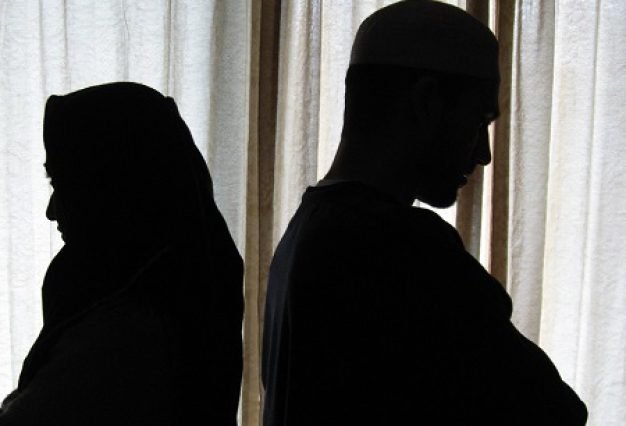By Shaykh Yusuf Badat
Question:
At the time of my marriage, my husband promised a separate private accommodation. He did not provide that. I tried living with him and his family for some time, however there was no privacy. My mother in-law and sister in law would always come in my room without knocking. They even hear my husband and I’s private conversations. I therefore was fed up with the rudeness, disrespect and lack of privacy and now returned to my parent’s home. I have asked my husband to pay for my living expenses until he does not find a separate accommodation. My husband has also not provided me my mahr despite me insisting him for it. Please let me know if my requests for a separate accommodation, maintenance support and also my mahr payment are valid or not according to Islam.
Answer:
بِسْمِ اللَّـهِ الرَّحْمَـٰنِ الرَّحِيمِ
In the Name of God, Most Merciful, Most Kind
Thank you/ Jazāk Allāh Khayr for contacting Mathabah Institute with your query.
In the described situation and the relevant questions posed, please kindly note the following:
If at the time of nikāḥ, the husband had made a promise of separate accommodation for the wife, then he must fulfill that promise and provide it to her. In fact, in Islamic law, a wife is entitled, by default, to a private separate accommodation.
“O you who have believed, fulfill [all] contracts.” – (Qur’ān 5:1)
“Muslims will be held to their conditions, except the conditions that make the lawful unlawful, or the unlawful lawful.” – (Tirmidhi 1352)
In the described scenario, there is no privacy for the couple while living with the in-laws, therefore the husband must provide a separate accommodation. He cannot demand his wife to live in such conditions where the sister in-law or mother in-law just barge in without knocking or can hear private activities and conversations. The ‘urf (common custom) in Canada also dictates that the couple should have their own accommodation even if it be a basement unit or apartment exclusive to only the couple. Until the husband does not fulfill this right of a private accommodation, if the wife chooses to live with her parents, he must provide her with nafaqah (maintenance money) for basic necessities of life such as shelter, food and medicine. – (See: Badā’i Al-Ṣanā’i, Vol 2, Page 332 and Vol 4, Page 23, Dār Al-Kutub Al-‘Ilmiyyah, Al-Qawāid Al-Fiqhiyyah, Dār Al-Tirmidhī, Page 46 and 54)
“Live with your wives in a known virtuous manner.” – (Qur’ān 4:19)
“Lodge them where you lodge according to your means, and do not injure them in order that you may make life difficult for them.” – (Qur’ān 65:6)
“Their [the wives’] maintenance and clothing must be undertaken by the father [of the children in result of the marriage] in a virtuous manner.” – (Qur’ān 2:233)
Islamic law dictates that mahr (the bridal gift) should be given immediately upon the conclusion of the nikāh. In fact, jurists have stated that if mahr is not given, the wife is not required to present herself for, nor fulfill the rights of the husband. The mahr can only be delayed if the wife has agreed to receive it at a deferred date or through agreed deferred instalments. – (See: Badāi’ Al-Ṣanāi, Vol 2, Page 275 and Vol 3, Page 480, Dār Al-Kutub Al-‘Ilmīyyah)
“And give the women [upon marriage] their [bridal] gifts graciously!” – (Qur’ān 4:4)
Only Allāh knows best
يَا أَيُّهَا الَّذِينَ آمَنُوا أَوْفُوا بِالْعُقُودِ – المائدة ١
الْمُسْلِمُونَ عَلَى شُرُوطِهِمْ إِلاَّ شَرْطًا حَرَّمَ حَلاَلاً أَوْ أَحَلَّ حَرَامًا – رواه الترمذي ١٣٥٢
وَمِنْهَا وُجُوبُ النَّفَقَةِ وَالسُّكْنَى لِقَوْلِهِ تَعَالَى وَعَلَى الْمَوْلُودِ لَهُ رِزْقُهُنَّ وَكِسْوَتُهُنَّ بِالْمَعْرُوفِ [البقرة: ٢٣٣] وقَوْله تَعَالَى لِيُنْفِقْ ذُو سَعَةٍ مِنْ سَعَتِهِ وَمَنْ قُدِرَ عَلَيْهِ رِزْقُهُ فَلْيُنْفِقْ مِمَّا آتَاهُ اللَّهُ [الطلاق: ٧] وَقَوْلِهِ أَسْكِنُوهُنَّ مِنْ حَيْثُ سَكَنْتُمْ مِنْ وُجْدِكُمْ [الطلاق: ٦] وَالْأَمْرُ بِالْإِسْكَانِ أَمْرٌ بِالْإِنْفَاقِ لِأَنَّهَا لَا تُمَكَّنُ مِنْ الْخُرُوجِ لِلْكَسْبِ لِكَوْنِهَا عَاجِزَةً بِأَصْلِ الْخِلْقَةِ لِضَعْفِ بِنْيَتِهَا – كتاب بدائع الصنائع في ترتيب الشرائع ج ٢/ ص ٣٣٢ دار الكتب العلمية
وَلَوْ أَرَادَ الزَّوْجُ أَنْ يُسْكِنَهَا مَعَ ضَرَّتِهَا أَوْ مَعَ أَحْمَائِهَا كَأُمِّ الزَّوْجِ وَأُخْتِهِ وَبِنْتِهِ مِنْ غَيْرِهَا وَأَقَارِبِهِ فَأَبَتْ ذَلِكَ عَلَيْهِ أَنْ يُسْكِنَهَا فِي مَنْزِلٍ مُفْرَدٍ لِأَنَّهُنَّ رُبَّمَا يُؤْذِينَهَا وَيَضْرُرْنَ بِهَا فِي الْمُسَاكَنَةِ وَإِبَاؤُهَا دَلِيلُ الْأَذَى وَالضَّرَرِ وَلِأَنَّهُ يَحْتَاجُ إلَى أَنْ يُجَامِعَهَا وَيُعَاشِرَهَا فِي أَيِّ وَقْتٍ يَتَّفِقُ وَلَا يُمْكِنُهُ ذَلِكَ إذَا كَانَ مَعَهُمَا ثَالِثٌ حَتَّى لَوْ كَانَ فِي الدَّارِ بُيُوتٌ فَفَرَّغَ لَهَا بَيْتًا وَجَعَلَ لِبَيْتِهَا غَلْقًا عَلَى حِدَةٍ – كتاب بدائع الصنائع في ترتيب الشرائع ج ٤/ ص ٢٣ دار الكتب العلمية
العادة محكمة – القواعد الفقهية ص ٤٦ دارالترمذي
التعيين بالعرف كالتعيين بالنص – القواعد الفقهية ص ٥٤ دارالترمذي
وَعَاشِرُوهُنَّ بِالْمَعْرُوفِ – سورة النساء ١٩
أَسْكِنُوهُنَّ مِنْ حَيْثُ سَكَنتُم مِّن وُجْدِكُمْ وَلَا تُضَارُّوهُنَّ لِتُضَيِّقُوا عَلَيْهِنَّ – سورة الطلاق ٦
وَعَلَى الْمَوْلُودِ لَهُ رِزْقُهُنَّ وَكِسْوَتُهُنَّ بِالْمَعْرُوفِ – سورة البقرة ٢٣٣
لَهَا أَنْ تَحْبِسَ نَفْسَهَا حَتَّى يُفْرَضَ لَهَا الْمَهْرُ وَيُسَلَّمَ إلَيْهَا بَعْدَ الْفَرْضِ وَذَلِكَ كُلُّهُ دَلِيلُ الْوُجُوبِ بِنَفْسِ الْعَقْدِ – بدايع الصنايع ٢/٢٧٥ دار الكتب العلمية
وَمِنْهَا الْمَهْرُ فَلَا جَوَازَ لِلنِّكَاحِ بِدُونِ الْمَهْرِ عِنْدَنَا – بدايع الصنايع ٣/٤٨٠ دار الكتب العلمية
وَآتُوا النِّسَاءَ صَدُقَاتِهِنَّ نِحْلَةً – النساء ٤




